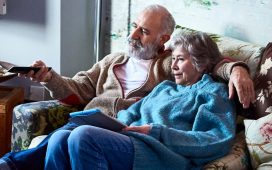The writer is a science commentator
Unhook your mask! Hark the virus-laden cheers! Monday is Freedom Day, when England lifts coronavirus restrictions in the face of soaring transmission.
Infections now run at 54,000 new cases daily. Still, businesses can throw open their doors. Mask mandates are out and the legal requirements for social distancing binned.
The government, which says a summer surge in disease is better than a winter one, insists we must learn to live with the virus and is offloading responsibility for managing the pandemic on to individuals and businesses. In truth Monday is Surrender Day as England waves a white flag to the virus and embarks on a strategy of mass infection.
In a letter to the Lancet medical journal, more than 100 doctors and scientists condemned the “dangerous and unethical experiment”. Virologists told the Financial Times it was a recipe for disaster, while Mike Ryan of the World Health Organization said the approach showed “moral emptiness and epidemiological stupidity”.
Lifting restrictions ignores the clinically extremely vulnerable, who either cannot be vaccinated or for whom vaccines work less well. An estimated 3.8m must now shield for their own safety. Their children, ineligible for immunisation despite an approved vaccine for over-12s, risk bringing home the rampant Delta variant if they attend school. The restoration of freedoms for some will end theirs.
This risk is exacerbated by the government’s decision to make masks a matter of personal responsibility. This is a misunderstanding of the science. Face coverings cut the amount of aerosolised virus expelled by an infected wearer, as well as cutting the amount inhaled by other wearers. My choice to mask up (or not) influences your risk; your decision shapes mine. Workers reliant on public transport must now bear the risk of other people’s choices. Sensibly, the Mayor of London has intervened to keep masks compulsory on London’s transport network; they also remain in Wales and Scotland.
The all-or-nothing framing of “diktat versus freedom” is undermining social solidarity and promoting bad pandemic decision-making, argues John Coggon, a law professor and ethics commentator from Bristol university: “We cannot and will not get by either with a view of outright legal governance or outright individual freedom.” The idea that freedom means allowing our mouths and nostrils to emit at will, even on rush-hour transport, is an astonishing loss of perspective during a pandemic caused by an airborne disease.
All eggs are now in the vaccination basket: by 16 July, about 35m were fully vaccinated in the UK; a further 11m had had first doses. The jabs are cutting, but not eliminating, hospitalisations and deaths. We are not at herd immunity and infections will rise among the unvaccinated young. Though less severely affected by Covid-19, exponential spread means small percentages can quickly scale into large absolute numbers. Under-50s hospitalised with Covid-19 are left with organ damage almost as frequently as older patients.
The government urges Englanders to be free but cautious, a mixed message compounded by the prime minister and chancellor’s self-isolation debacle. It is asking the public to avoid flexing the very liberties that have been so performatively handed back. As with speed limits and seat belts, ministers should take responsibility and set rules. Israel and the Netherlands reimposed restrictions after taking the same premature path to freedom.
Mass infection risks swamping hospitals, decimating workforces, sickening the young and weak, and creating vaccine-resistant variants — all of which could lead to further lockdowns and, ultimately, less freedom. This is not learning to live with Covid-19 but caving in to it.












